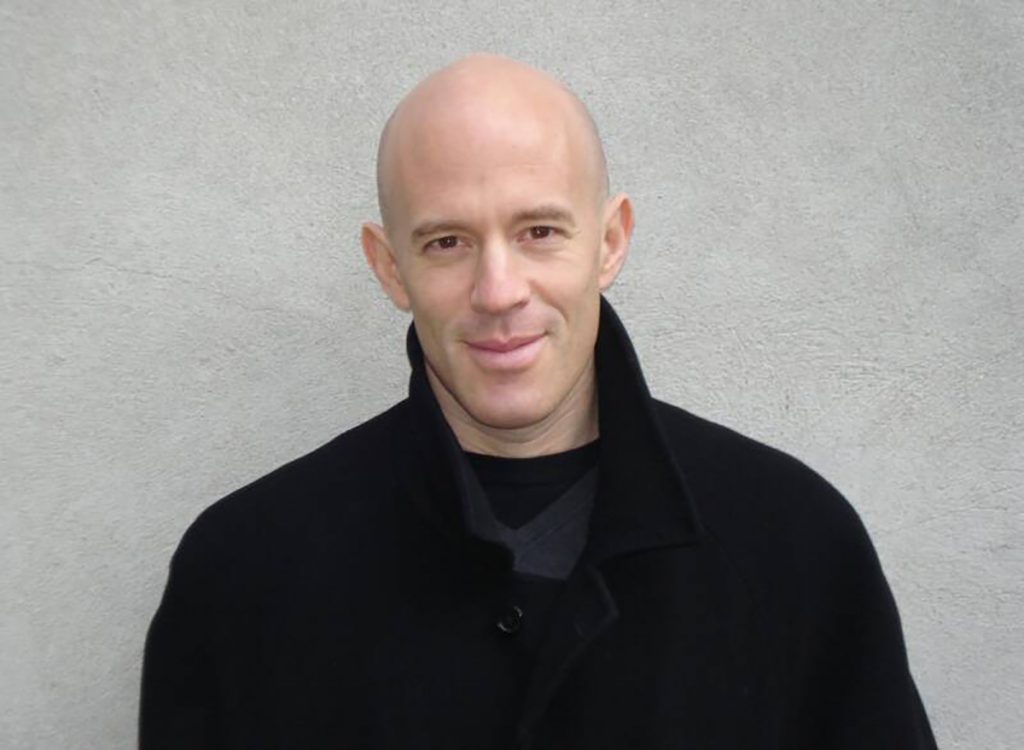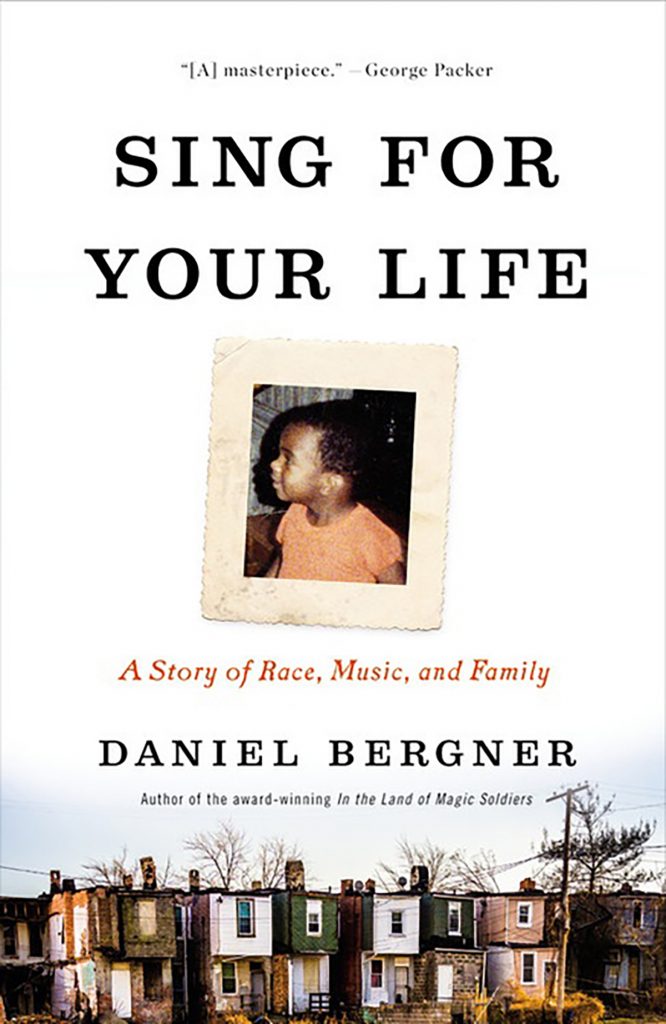
Amid discussions of virtual reality, moonshots and the future of design and technology, Daniel Bergner’s book Sing for Your Life: A Story of Race, Music, and Family may seem like an odd choice for Week One’s theme of “Invention” at Chautauqua Institution.
It tracks the meteoric rise of singer Ryan Speedo Green, who went from juvenile detention to opera stardom.
But Sherra Babcock, vice president and Emily and Richard Smucker Chair for Education, said it offers a different window into the theme of the week: it’s a book about reinvention.
Sing for Your Life is the Chautauqua Literary and Scientific Circle selection for Week One, and Bergner will discuss his work at 3:30 p.m. Thursday in the Hall of Philosophy for Week One’s CLSC Roundtable.
Babcock said Sing for Your Life speaks to the message of Chautauqua and the role art can play in transforming a life.
“This is a warm book, and it’s an inspirational book,” Babcock said. “It’s a book that says, ‘It’s not too late.’ ”
In 2010, Bergner, a contributing writer for The New York Times Magazine, was covering the Metropolitan Opera National Council Auditions, which are meant to discover and develop young opera singers. He followed the early rounds of the competition across the country. When the semifinalists arrived in New York, he met Green for the first time.
Green was one of the five winners of the auditions.
“Within weeks, I began to think there was a lot more here than could fit into the long magazine story that I was going to write,” Bergner said.
Bergner said Green initially wanted little to do with him, and didn’t think he had a story to tell.
Green grew up in Suffolk, Virginia, and had a complicated and often troubled home life. He was sent to juvenile detention when he was 12 after threatening to stab his mother and brother, and was placed in solitary confinement.
Green was reluctant to talk about his past at first, Bergner said, but the two got to know each other slowly and built a sense of trust.
Bergner described this hesitancy on Green’s part in Sing for Your Life.
“The best way to move forward was to focus forward,” Bergner wrote. “The benefit of looking away from the past was that you were less likely to repeat it, less likely to be tricked — and trapped — by it. … (There) were plenty of moments when he seemed to say, ‘I don’t want to take this risk. I can’t afford to.’ ”
Once their rapport was established, Bergner followed Green for almost a year. He interviewed Green and observed his voice lessons. Bergner also made trips to southeastern Virginia to meet figures from Green’s past: family members, friends, teachers — everyone he could find along the way who could provide insights into his journey.
 Bergner also had a moment of “sheer luck,” he said, when he received a record of Green’s time in juvenile detention. He said it helped him understand what it was like for Green to be a 12-year-old in such an intense situation.
Bergner also had a moment of “sheer luck,” he said, when he received a record of Green’s time in juvenile detention. He said it helped him understand what it was like for Green to be a 12-year-old in such an intense situation.
Completing the book was a long haul, Bergner said, especially considering the timeframe. He started following the opera contest in 2010 and turned the book in at the end of 2015.
Green’s reaction to the book was worth it, though. When Bergner handed over an early set of page proofs, he said Green only took issue with “maybe five words” of the story.
“Otherwise, he felt that I’d captured his story,” Bergner said. “When you’re working that closely with the person you’re writing the story about, there’s hardly a better feeling than the sense — his sense — that I’d been faithful to the essence of his journey.”
Part of that journey, for Bergner, was the way his understanding of Green deepened as they worked together.
“The person I first got to know was radiant,” Bergner said. “Literally that. It wasn’t so much that my present-tense perception of Ryan changed. It was that I had this infinite question to answer, which was: how had he traveled from the person he’d been at 12 — taken away in shackles — to the person I was seeing and hearing, and the person who continued to grow as an artist over the time I knew him and was preparing to write the book?”
In a time when the role of art is being questioned, criticized and devalued — an example being the Trump administration’s March proposal to eliminate all funding for the National Endowment for the Arts — Bergner said that Green’s story is “relevant and powerful” because it represents an intersection of art and race. He said these issues are “at the heart of the book.”
“It’s about breaking boundaries, it’s about recasting expectations, it’s about changing the way we think about identity. The intensity of the racial aspects of Ryan’s story were a big part of making me want to put myself at his side for five years and write this book.”
Bergner said he was also drawn to the way that Bergner carved out a place in the world of opera and within the Met, creating a new home for himself.
“That’s no easy task,” Bergner said. “That’s a very demanding world.”
Bergner said that opera is an “exacting” art form, but he was impressed by the way Green was able to become a part of the community.
“He managed, in that intense world of art, to create a circle of allegiance that helped sustain him and take him from a promising but pretty raw artist to the artist we’re going to talk about,” Bergner said.
The world of opera may be intense and exacting, but it’s also a small one. That’s how Steven Osgood, general and artistic director of the Chautauqua Opera Company, first heard of Green.
Osgood was conducting for New York City Opera when Green won the Met competition. He said his colleagues came back from the auditions raving about Green.
“All of them said that the real star, the real standout was this guy, Ryan Speedo Green,” Osgood said. “ ‘Remember that name,’ they said. ‘He is so talented. His infectious personality just radiates off the stage.’ ”
Osgood got to experience that exuberant presence firsthand when he and Green worked together on The Death of Klinghoffer and La Boheme.
He said Green’s singular personality became apparent when they worked together on The Death of Klinghoffer. The opera, written by John Adams, follows a group of terrorists who hijack a passenger ship. Osgood said it’s a “brutal story,” and one that tends to draw its cast close together. Green played one of the terrorists.
“The really wonderful colleagues of yours that are playing terrorists and shooting machine guns at everybody — they’re in as horrible a situation as the people playing the victims of it,” Osgood said. “And Ryan couldn’t have been more gregarious and outgoing and professional.”
Osgood said he knew bits and pieces of Green’s story, but reading Bergner’s full account was “eye opening.” Osgood said after reading Sing for Your Life, he questioned whether it made him remember his experiences working with Green differently.
“I don’t think it does,” Osgood said. “It deepens the respect that I have.”
Osgood said he was struck by the way Green was able to both forgive and challenge himself, and by how he finessed his talent. Osgood said vocal chops and training are necessary to get a foot in the door with opera, but other skills are crucial, too.
“The more facile you are with Italian and the intricacies of how the language works, the more you’re going to be able to unlock the character in the music,” Osgood said. “And it is about the details. That being said, if you only have the details, but don’t have that radiance that comes through — you’re not going to have a career.”
Despite not having the early training with Italian that many opera singers do, Osgood said that Green has an “it” factor and drive that has propelled him to success.
“The radiance, the technical chops and the willingness to push yourself as far as he did, to get the details, to never stop chasing it — because none of us will ever have it all — that’s what makes a really, truly successful artist,” Osgood said. “And that’s what you see in the book.”
Bergner said this dedication and persistence makes Green’s story a great fit for a week focused on “Invention.”
“It would be hard to find a person who is more transformed, who has gone through a more profound transformation than Ryan Speedo Green,” Bergner said. “And if that’s not reinvention, I don’t know what is. He reinvented himself, and that is the story of Sing for Your Life.”




